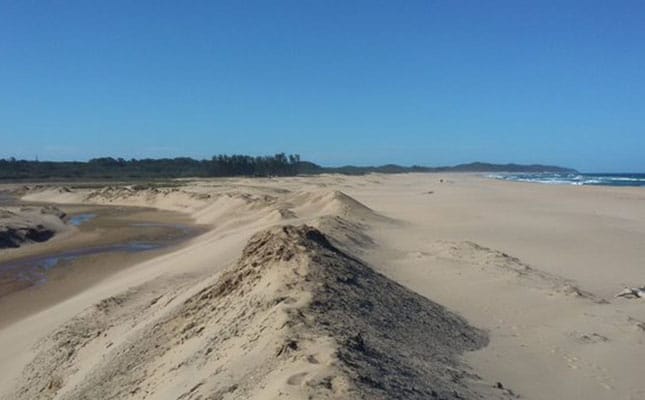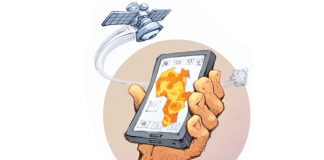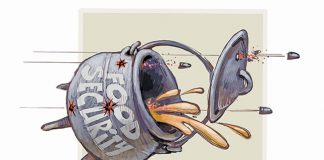
As optimistic grain farmers, we all believe that the worst of the drought is over. The past two years – 2015 and 2016 – have been an emotional and tough time for farmers.
You cannot understand the drought without experiencing it; you need to get out into the blazing sun and dry winds, to understand and develop empathy.
VIEW Gallery: Good rainfall brings hope for farmers
So, on 3 January last year, I drove 1 275km through the central areas of South Africa’s maize-producing regions. Witnessing the devastation of the drought broke my heart, not just for the farmers, their families and workers, but for the rural areas.
I saw animals wandering around day after day, looking for pasture to graze, while noticing that green JoJo tanks had become the new unofficial logo of rural towns.
While a disaster like this can shift your focus, with your priorities changing and survival mode kicking in, some farmers demonstrated the strength to fight for themselves, their neighbours and fellow farmers.
The following are lessons we must learn from the drought to become more than just survivors during the next one.
Lesson #1: adapt now
You cannot change your agricultural practices only when the drought is already upon you. Sustainable systems of conservation agriculture and crop rotation are ways of life, and farmers who practised these were better off, and weathered the drought more sustainably, than those who had not employed these methods. For example, an additional 0,5t/ ha in 2016 would have improved your starting position for the new season.
Lesson #2: research
The drought elevated the intensity of Grain SA’s research into drought and heat-tolerance, and taught us that we must not wait for a severe drought before intensifying our research on mitigating the risks of climate change.
The poor pollination of irrigation maize during the heat waves of January and February this year also showed us that heat-tolerant varieties could be a higher priority than drought-tolerant varieties.
Due to this, Grain SA visited almost all research institutions in South Africa, such as those of the Agricultural Research Council, to find out what they were doing to mitigate the negative effects of climate change.
We discovered that Rhodes University was in the process of experimenting with maize cultivars to determine which were more resistant to nitrogen deficiency.
Lesson #3: Alternative crops
Some regions received rainfall too late for farmers to plant their usual crops. This resulted in affected producers planting alternatives.
However, this is risky, and farmers should do the relevant calculations to determine profitability before considering this; a possible drought should not be the only factor when changing to an alternative crop, and market demand and profitability remain key.
Lesson #4: remember those who made a difference
Survival mode allows you to focus on your own problems. Leadership, however, involves considering all aspects of your operation, from your farmworkers to suppliers, and focuses on long-term sustainability.
Input suppliers who braved the challenge, and did not think only of themselves, were crucial during this past season and deserve recognition.
READ Implements for vegetable farmers
Input suppliers who braved the challenge, and did not think only of themselves, were crucial during this past season and deserve recognition.
However, there were also industry players that focused on short-term survival, and broke every rule in the sustainable agriculture handbook by planting, despite the adverse weather conditions.
We should remember those who stood by farmers during the drought, and who prioritised long-term sustainability above their own survivial. With better times ahead, buyers and input suppliers, such as seed, chemical and fertiliser suppliers, who did not support you during the drought will try to secure your business again. Remember those on whom you could trust and rely.
With better times ahead, buyers and input suppliers, such as seed, chemical and fertiliser suppliers, who did not support you during the drought will try to secure your business again. Remember those on whom you could trust and rely.
Lesson #5: educate Consumers
The drought has taught us that the agricultural sector should educate consumers on the difficulty and costs of producing food.
While current high food prices and scarcity of food products are doing wonders to earn farmers respect and appreciation for producing food during the drought, memories are short.
After the first rainfall, consumers regard the drought as over, and move on. But it rains water, not grass or money. Many grain farmers will harvest another crop only in June 2017, and will only then begin repaying their loans.
Moreover, despite the severity of the drought, government still shows more sympathy for the consumers having to pay higher prices for food, rather than for the few thousand suffering farmers.
Lesson #6: Organised Agriculture
Organised agriculture such as Agri SA proved its worth during the drought, and negotiated with government, financial institutions and agribusinesses for financial support.
For instance, Agri SA opened a bank account to collect donations and funding, organised the logistics to transport animal feed to the regions of the country most in need, and mobilised retailers and other businesses, as well as the general public, to donate funds to assist farmers and communities.
I’ve learnt that a private-private partnership, such as a relationship between organised agriculture entity and a private company, is as strong as any other partnership, especially in desperate times.
I have also learnt that farmer gatherings, such as the Grain SA congress, could be a time in which the association engages with the farmers by providing them with as much information as possible while also giving them a platform where they could share their stories and difficulties. In this manner, they can help each other overcome their challenges and difficulties.
Lesson #7: government policies
Despite the fact that eight out of the nine provinces were declared disaster areas, government did not declare the drought a national disaster, thus allowing it to refrain from using special funds to assist farmers.
The absence of data on the impact of the drought on small-scale farmers may also have been a stumbling block to unlock these potential funds. While many reports on the effects of the drought were written and submitted, not enough was achieved.
One of the positive outcomes of this drought was the solidarity shown by the plant and health divisions of the Department of Agriculture, Forestry and Fisheries to ensure that all imports still met food and plant safety regulations.
It was, however, concerning that non-agricultural government departments showed little sympathy for farmers affected by the drought, and decided to review tariff policies; a drought is not the ideal time to reconsider cornerstone policies of the grain value chain.
Lesson #8: unsung heroes
Impressively, grain farmers managed to plant 700 000ha of maize in the 10 days between 15 January and 25 January 2016 for a planting rate of roughly 1,26 million seeds/minute. This extraordinary capacity helped maintain SA’s food security. Some farmers also assisted their rural counterparts by dropping off bales of fodder in the townships every time they went into town. I also heard about truckloads of pumpkins being delivered at old-age homes in townships. These farmers are the real heroes of the drought.
Lesson #9: we can overcome
The single most positive experience of this drought was encountered amongst those who were resilient and helpful to their community and fellow farmers. I shall remember those who managed to plan for the following season while their crops were dying, and the faith that carried farmers, their families and workers through the tough times to become better citizens and tomorrow’s leaders. SA farmers can overcome! – Annelie Coleman













